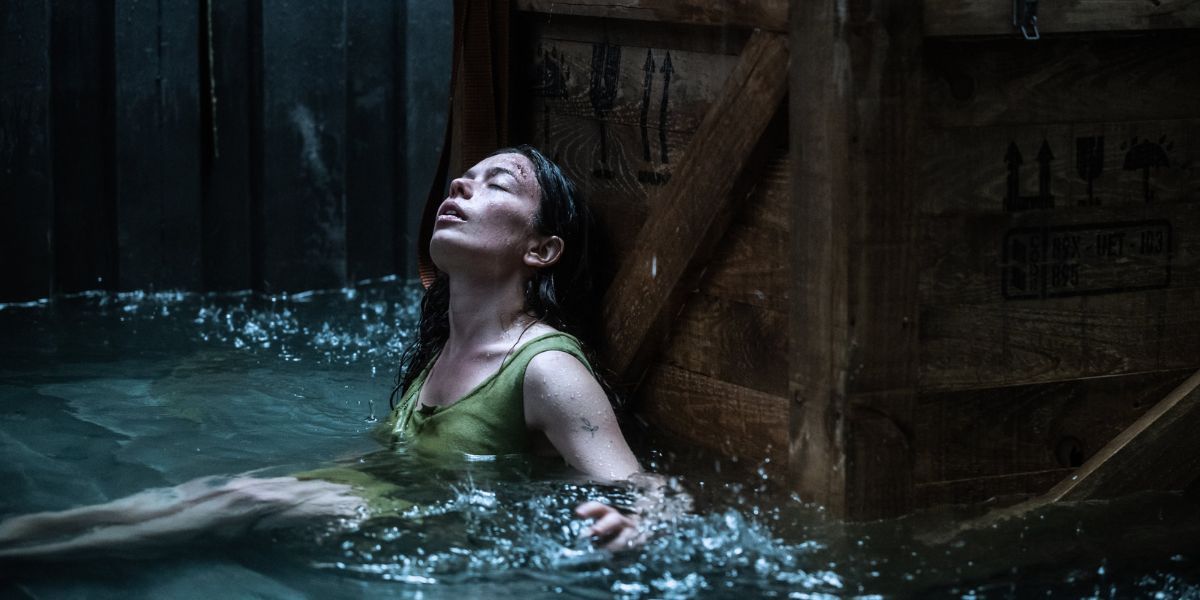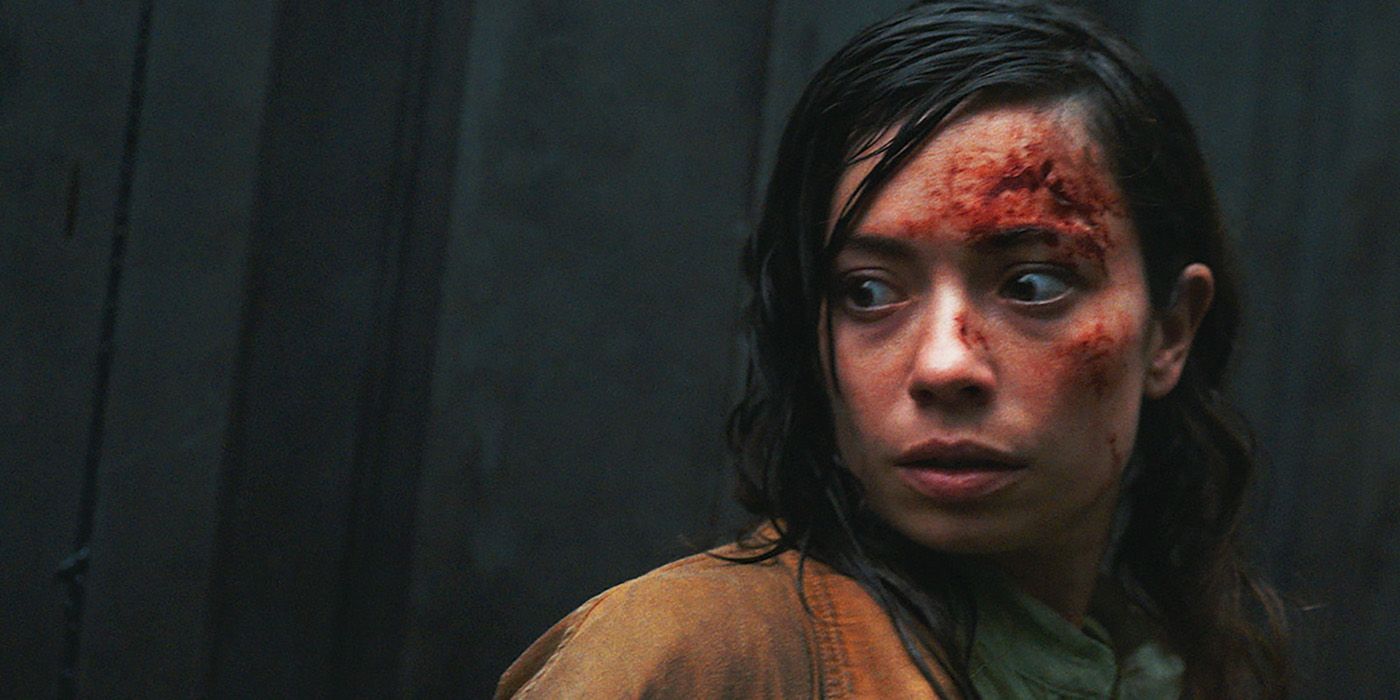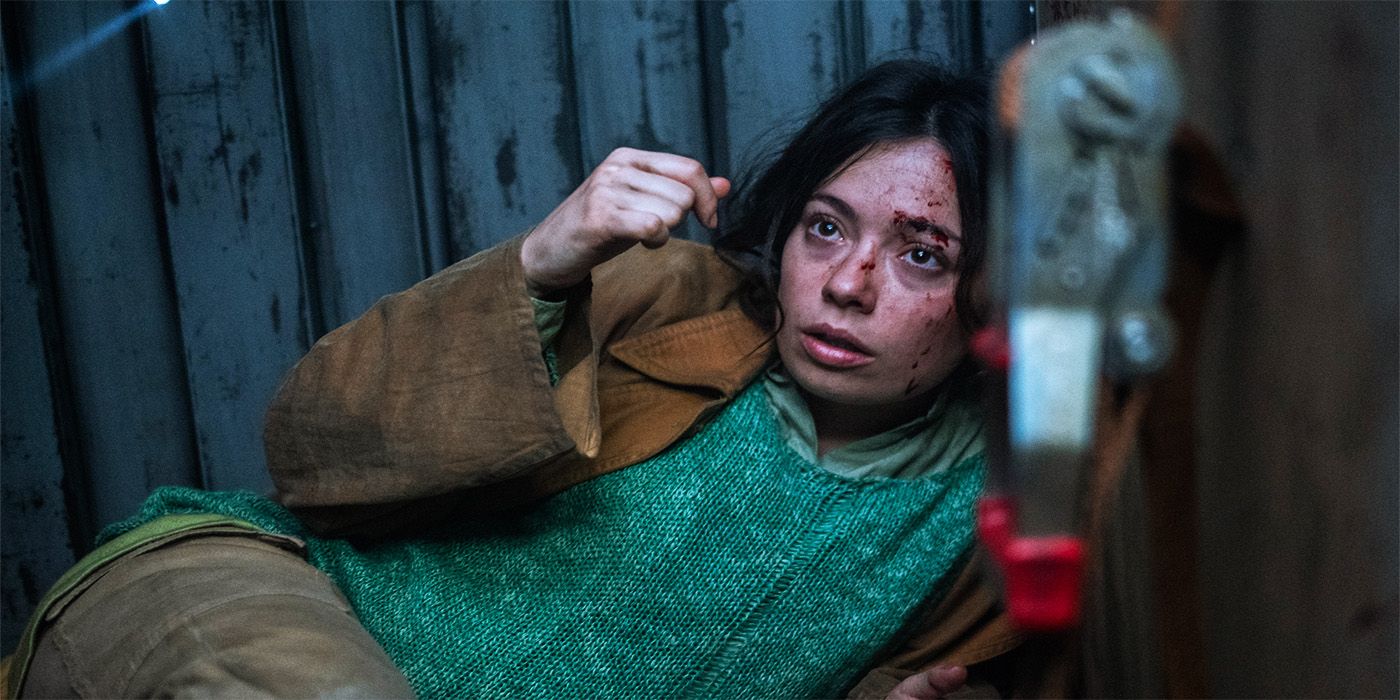Editor's Note: The following contains spoilers for Nowhere.
The Big Picture
- Nowhere is a Spanish thriller drama film directed by Albert Pintó, focusing on the journey of a pregnant woman named Mia seeking a better life in the unknown.
- The film mirrors the current migrant crisis, highlighting the fact that migrants are not just statistics, but individuals with their own stories.
- Nowhere captures the resilience of the human spirit against adversity, showcasing Mia's determination to survive and protect her unborn child in dire circumstances.
In a world where Hollywood is at the core of mainstream film, once in a while, an international movie becomes the talk of cinema. One such is Netflix's Spanish thriller drama, Nowhere. Directed by Albert Pintó, who is best known for directing the popular TV series Money Heist, and the film Asylum: Twisted Horror and Fantasy Tales, Nowhere is a story about the grit and determination of the human spirit. It is about seeking a better life in the unknown rather than living in the perilous known. But it's not a destination film, it's a character-led story about the risky journey that a very pregnant Mia (Anna Castillo) immerses the viewer. Nowhere is a mirror to the current migrant crisis, but it focuses on highlighting the fact that migrants are not just mere statistics, but individuals with their own stories.
What Is 'Nowhere' About?
Nowhere follows Mia, who together with her husband, Nico (Tamar Novas), are escaping a dystopian, totalitarian rule that has just taken over power in their country. The authoritarian government executes pregnant women and children. Having lost their first child to the dictatorship already, the couple is keen on protecting their unborn child, and they seek the services of a smuggler, who organizes their illegal departure on a cruise ship. But soon after, the couple is separated. Mia finds herself in a container where she becomes the only survivor of a shooting by officers who are keen to eliminate the container's occupants. Before long, a strong current plunges her container into the sea, separating it from the ship. As if that is not harrowing enough, her story has only begun. She has to survive the lonely sea in isolation and with little supplies while expecting to deliver a baby.
A simple storyline with a minimalist setting, director Pintó does well to keep the audience glued on the singular container set. Mia's soliloquy in the container presents depth to her character, showcasing her inner thoughts, regrets, and hope. Her dialogue with her baby immerses the viewer into her world and provides an escape from the harrowing experience that she is going through surviving the merciless sea. Nowhere is reminiscent of Alfonso Cuarón's Gravity where the protagonists are isolated from the world as we know it and have to find a way to survive from what is available in their surroundings.
'Nowhere' Mirrors the Current Migrant Crisis
Coming at a time when migrant adventures have brought to the news many horrendous stories, it is no wonder that Mia's journey appears real and, hence, could be mistaken for a true story. However, Nowhere is an original story by Indiana Lista alongside Miguel Ruz, Seanne Winslow, and Teresa Rosendoy. But given the film's visceral imagery, Castillo's stellar performance, and related stories about migrants finding themselves in situations not far from Mia's, it is understandable that one might think it is based on a true story. The story is also set in a Spanish-speaking country, presumably a fictional Spain, which brings to the fore the migrant crisis in Europe associated with calamities at the sea. The Guardian, for instance, reported on 39 Vietnamese migrants who died in a container in 2019 as they were being transported across the English Channel. The AP has also covered many heart-wrenching stories where migrants faced similar situations. From the tragic 2022 incident in which 53 migrants died in a tractor-trailer in San Antonio to 2017's 13 Africans who suffocated inside a shipping container in Libya, Nowhere is relatable across the world.
But there have been successful migrant adventures like Mia's, albeit in the short term. Four Nigerian stowaways eager to escape hardships in their homeland, hoped on a cargo ship not knowing where it was going but hoping it would land in their dream destinations. They were astonished when after 14 days, they landed in Brazil, a far cry from what they were hoping for. Narrating to the New York Times, the four said they hid on the ship's rudder while enduring the over 3,500 miles (5,600 kilometers) across the Atlantic Ocean. Much like Mia's story, the four did everything to survive. Both Mia and the four ran out of supplies with the four stating that they drank seawater in the final days of their long journey before they were rescued by the Brazilian federal police. Mia's story, on the other hand, has her rescued by a family that had gone fishing and notices seagulls hovering over the sea where she was on the verge of drowning. They are such similar stories that fans question whether Nowhere is based on a true story.
'Nowhere' Shows Necessity Is the Mother of Inventions
Nowhere captures the resilience of the human spirit against adversity. Pregnant and isolated after her container drops off the ship following heavy currents, Mia has to deliver her baby under dire circumstances. Her container is leaking water, and if she doesn't do anything, she will soon sink with it. When her food supply and water runs out, she has to find a solution to keep her and her newborn baby alive. Mia utilizes available meager resources to improvise, and she adapts to each of those hurdles including some cringe-worthy decisions like her eating her umbilical cord until she finally meets their rescuers. Even then, she uses her last ounce of energy to release carcasses of captive fish into the sea to draw in nearby seagulls, thus prompting the curiosity of her rescuers. Some critics have said that this kind of plot line that is based on coincidences takes away from the believability of the story. But it is the spirit of human survival that wins over the audience in this harrowing yet hopeful story by Pintó.
Netflix's Nowhere is a horrifying and isolating story of hope, told in a way that immerses you in Mia's world. When she feels pain, you feel it with her, when she fights to live because of her daughter, you want to help her do it. When her husband Nico calls her to tell her that it is over for him and that she will have to finish what they started on her own, you feel the words they have shared throughout the film, "I love you more than yesterday, but less than tomorrow." And you know that tomorrow will come, and it will be better than today.




